More Roth IRA Opportunities Than Ever: Exploring New Paths Under the SECURE Act
Recent updates under SECURE Act 2.0 have made Roth IRAs more appealing than ever, offering investors new avenues to build their retirement savings. Here’s why Roth IRAs might be the right choice for you:
Tax Benefits
Roth IRAs allow contributions with after-tax dollars, meaning withdrawals – including earnings – are tax-free after age 59½, provided the account has been open for at least five years. This means tax-free inheritance for those who are beneficiaries on Roth accounts. Unlike traditional IRAs, Roth IRAs also waive the requirement for minimum distributions, offering flexibility in retirement planning.
Funding Options
Investors can contribute directly to a Roth IRA if their income falls within specified limits – in 2024, your modified adjusted gross income (MAGI) must be below $146,000 for single filers to make the full contribution. If your income exceeds the limits, a backdoor Roth IRA strategy allows indirect contributions. For 2024, individuals can contribute up to $7,000 (or $8,000 for those aged 50 and above) into their Roth IRAs for the year.
Conversion Opportunities
SECURE Act 2.0 expands conversion options, enabling individuals to convert funds from traditional IRAs, employer-sponsored plans, and even 529 college savings plans into Roth IRAs. Beneficiaries of 529 plans can now protect unused funds from additional taxes by converting up to $35,000 to a Roth IRA, as long as the 529 plan is at least 15 years old. For other conversions, while taxes will apply to any pre-tax amounts converted, this strategy can provide long-term tax benefits, especially under projected lower future tax rates.
Employer-Sponsored Roth Features
Employers offering 401(k), 403(b), or 457(b) plans can include designated Roth accounts, allowing employees to make after-tax contributions. This option extends to SEP IRAs and SIMPLE IRAs, enhancing retirement savings strategies. Also due to the new legislation, if your employer matches your contributions to a 401(k), 403(b), or 457(b) plan, you can now opt to have these employer contributions deposited on a Roth basis instead.
No More RMDs
Starting in 2024, employer Roth accounts are exempt from Required Minimum Distributions (RMDs), offering greater control over retirement withdrawals and potential tax savings.
Is Roth Right for You?
Choosing between a Roth and traditional IRA depends on factors like current versus future tax rates and affordability. Assessing your tax situation and retirement goals can help determine if a Roth IRA aligns with your long-term financial strategy.
In conclusion, Roth IRAs provide valuable tax advantages and flexibility, particularly under recent legislative changes. Whether through direct contributions, conversions, or employer-sponsored plans, exploring Roth options can enhance your retirement planning toolkit. If you’d like help assessing if a Roth IRA is right for you, reach out to us for a free consultation.

